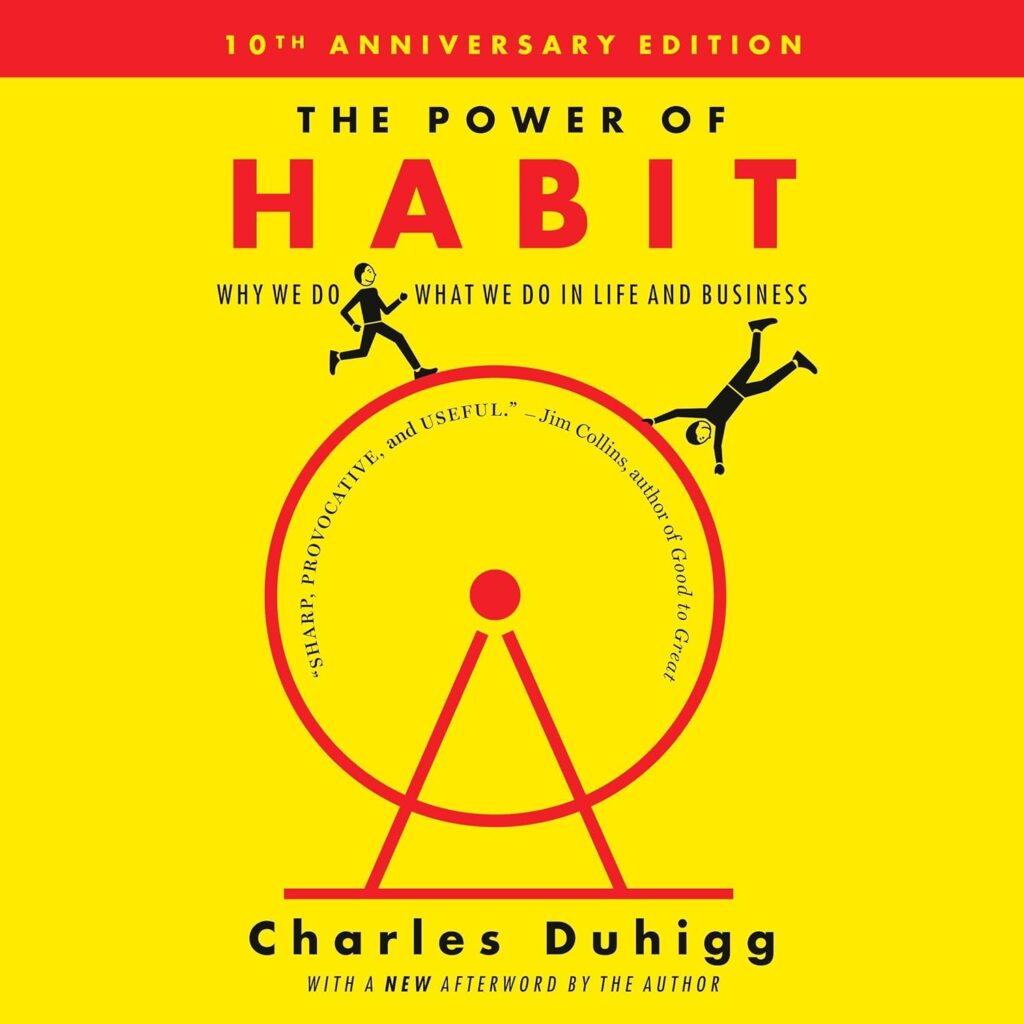When it comes to understanding the patterns that shape our lives, The Power of Habit by Charles Duhigg is a must-read. This book uncovers the fascinating science behind habits and how they dictate everything from our morning routines to our career success. If you’re looking for a quick way to capture some of the book’s most insightful takeaways, you’re in the right place. In this post, I’m sharing ten of the best quotes from The Power of Habit that will motivate you to think about habits in a whole new light.
These quotes aren’t just about the habits we recognize but also the invisible loops that drive our behavior every day. They offer a powerful perspective on how we can change for the better, one habit at a time. Let’s dive into the top 10 best quotes from The Power of Habit.
- “Change might not be fast and it isn’t always easy. But with time and effort, almost any habit can be reshaped.” This quote captures the essence of habit transformation. It’s a reminder that while change can feel slow, persistence and patience will help us achieve results. Reshaping habits is a journey, but it’s one we can control with dedication.
- “Typically, people who exercise start eating better and becoming more productive at work. They smoke less and show more patience with colleagues and family. They use their credit cards less frequently and say they feel less stressed. Exercise is a keystone habit that triggers widespread change.” This highlights the importance of keystone habits, those that influence multiple areas of life. Exercise, in this case, isn’t just about physical health but has ripple effects on overall well-being.
- “The Golden Rule of Habit Change: You can’t extinguish a bad habit, you can only change it.” Duhigg explains that we can’t simply erase a habit. Instead, we need to replace it with a more positive behavior. This insight is powerful because it shifts our focus from “getting rid of bad habits” to “transforming them.”
- “Champions don’t do extraordinary things. They do ordinary things, but they do them without thinking, too fast for the other team to react. They follow the habits they’ve learned.” A powerful reminder that success often comes from mastering the basics. Habits drive the automatic actions that make champions stand out, not necessarily extraordinary talent.
- “Willpower isn’t just a skill. It’s a muscle, like the muscles in your arms or legs, and it gets tired as it works harder, so there’s less power left over for other things.” Here, Duhigg connects willpower to physical energy, emphasizing that we need to manage it carefully. This makes willpower feel more tangible, like something we can strengthen and conserve over time.
- “Rather, to change a habit, you must keep the old cue and deliver the old reward, but insert a new routine.” Duhigg describes how the habit loop works—cue, routine, reward—and how to hack this loop by changing the routine. It simplifies the process of habit change and gives us a clear framework for making shifts.
- “If you believe you can change—if you make it a habit—the change becomes real.” This quote highlights the role of belief in habit formation. It’s not just about action but also about having faith in your ability to evolve and improve.
- “This process within our brains is a three-step loop. First, there is a cue, a trigger that tells your brain to go into automatic mode and which habit to use. Then there is the routine, which can be physical or mental or emotional. Finally, there is a reward, which helps your brain figure out if this particular loop is worth remembering for the future: THE HABIT LOOP.” The habit loop is a core concept in the book. Understanding this loop—cue, routine, reward—helps us see how habits form and what drives them. It’s the foundation of habit change.
- “This is the real power of habit: the insight that your habits are what you choose them to be.” Duhigg empowers us with the realization that we control our habits. By taking ownership of them, we can reshape our lives, turning small actions into powerful forces of change.
- “THE FRAMEWORK: Identify the routine, Experiment with rewards, Isolate the cue, Have a plan.” This quote sums up Duhigg’s practical advice for changing habits. It’s a step-by-step approach that helps us decode our behaviors and intentionally shift them for the better.
Conclusion
The quotes from The Power of Habit are more than just memorable lines; they offer a roadmap for personal transformation. Whether you’re aiming to break a bad habit or build a new, empowering one, these insights can be a guide to help you along the way. What habits are shaping your life right now, and how might you start transforming them?

Book Review: The Power of Habit Book Summary: What You Need to Know




